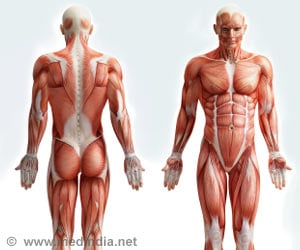- Givinostat, new muscular dystrophy drug can help treat heart failure with preserved ejection fraction (HFpEF).
- HFpEF occurs due to defective heart relaxation
- After drug intake, cardiac relaxation without altering blood pressure was observed
To address whether this defect in the muscle cells could be treated, the researchers, led by CU faculty members Mark Y. Jeong, MD, assistant professor of medicine, and Timothy A. McKinsey, Ph.D., associate professor of medicine, tested whether givinostat might improve the heart's ability to relax in the face of hypertension or aging.
They found that the investigational drug, tested in rat and mouse models, helped the heart relax properly. Thus, the findings hold promise for treating patients with diastolic dysfunction and HFpEF.
"These are exciting findings because we may be able to help patients with a form of heart failure that has been recalcitrant to standard-of-care therapies," said McKinsey. "Givinostat is currently in clinical development for the treatment of muscular dystrophy. Our data suggest the possibility that givinostat could be 'repurposed' for the treatment of HFpEF.
Obviously, it is early days, but we are excited to test givinostat in a large animal model of HFpEF as the next step toward translating our findings to humans. Our data also reveal relaxation impairment of muscle cells as a previously unrecognized process that contributes to diastolic dysfunction of the heart. Thus, other therapeutic strategies that improve this defect could also be useful for the treatment of HFpEF".
- Mark Y. Jeong, Ying H. Lin, Sara A. Wennersten,et.al. Histone deacetylase activity governs diastolic dysfunction through a nongenomic mechanism, Science Translational Medicine (2018).DOI: 10.1126/scitranslmed.aao0144
Source-Eurekalert















